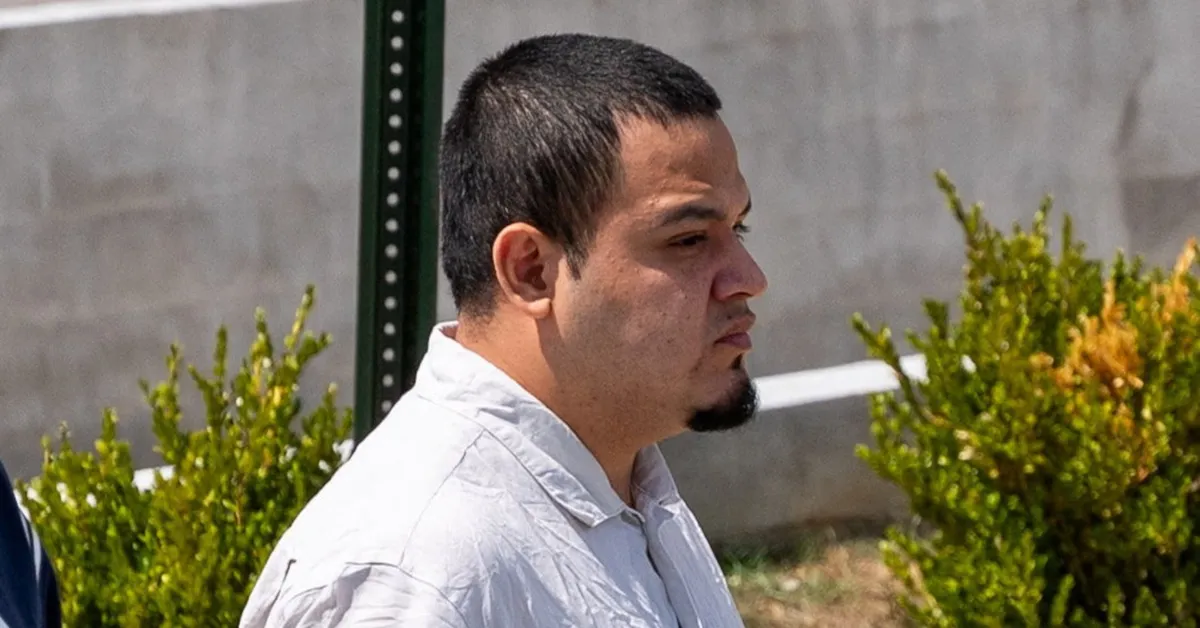
On August 22, Kilmar Abrego, a migrant who became a symbol of the harsh immigration policies under former U.S. President Donald Trump, was released from criminal custody in Tennessee. This significant moment was captured by reporters, with video footage shared on X by WJLA television showing Abrego arriving at a family home in Maryland. The warm welcome included hugs and celebratory chants of "Yes we could!" in Spanish from his relatives.
Abrego, now 30 years old, was deported to his home country of El Salvador in March 2023, despite a ruling from an immigration court in 2019 that prohibited his deportation due to the risk of persecution from local gangs. His situation gained national attention when he was flown back to the U.S. in June to face serious criminal charges related to the transportation of migrants who were living illegally in the country. The Trump administration faced criticism for their inaction, as officials acknowledged that Abrego's deportation was an administrative error, yet failed to expedite his return despite a federal judge's order.
Although Abrego is currently free, his future remains uncertain. Once he arrived in Maryland, he could still be taken into custody by immigration officials, prompting potential deportation proceedings. Abrego has pleaded not guilty to the charges against him, and his legal team is actively requesting U.S. District Judge Waverly Crenshaw to dismiss the case. They argue that prosecutors are improperly targeting him in retaliation for his lawsuit against the legality of his deportation.
Last month, Judge Crenshaw upheld the decision made by U.S. Magistrate Judge Barbara Holmes to release Abrego from pre-trial custody, stating that he posed no danger to the community and was not a flight risk. However, Judge Holmes delayed Abrego's release for a month due to concerns raised by his defense team. They feared that once Abrego was released, immigration authorities could swiftly detain him and deport him to a third country, potentially outside of El Salvador.
In light of these developments, U.S. District Judge Paula Xinis, who is overseeing Abrego's civil lawsuit, has mandated that immigration officials must provide his attorneys with a three-day notice prior to any attempt to deport him to a third country. This ruling allows his legal team the opportunity to challenge such removals. Prior to his deportation, Abrego had been living in Maryland with his wife and their children.
To ensure Abrego's safe return to Maryland, his lawyers arranged for private security. Upon his return, he is expected to report to a pre-trial supervision officer and will be subject to home detention with electronic monitoring. Reports suggest that the U.S. government has indicated plans to deport Abrego to Uganda soon, with a request for him to appear at a federal facility in Baltimore. However, neither ICE nor Abrego's attorneys have confirmed the authenticity of these documents.
Homeland Security Secretary Kristi Noem referred to Abrego as a criminal and an immigration violator, labeling him a "monster" released by "activist liberal judges." Noem emphasized her commitment to ensuring that Abrego faces justice and remains out of the U.S. "We will not stop fighting till this Salvadoran man faces justice and is OUT of our country," she posted on X.
This case continues to unfold, symbolizing the ongoing tensions surrounding U.S. immigration policies and their implications for migrants. The situation of Kilmar Abrego serves as a critical reminder of the complexities and challenges faced by individuals navigating the U.S. immigration system.